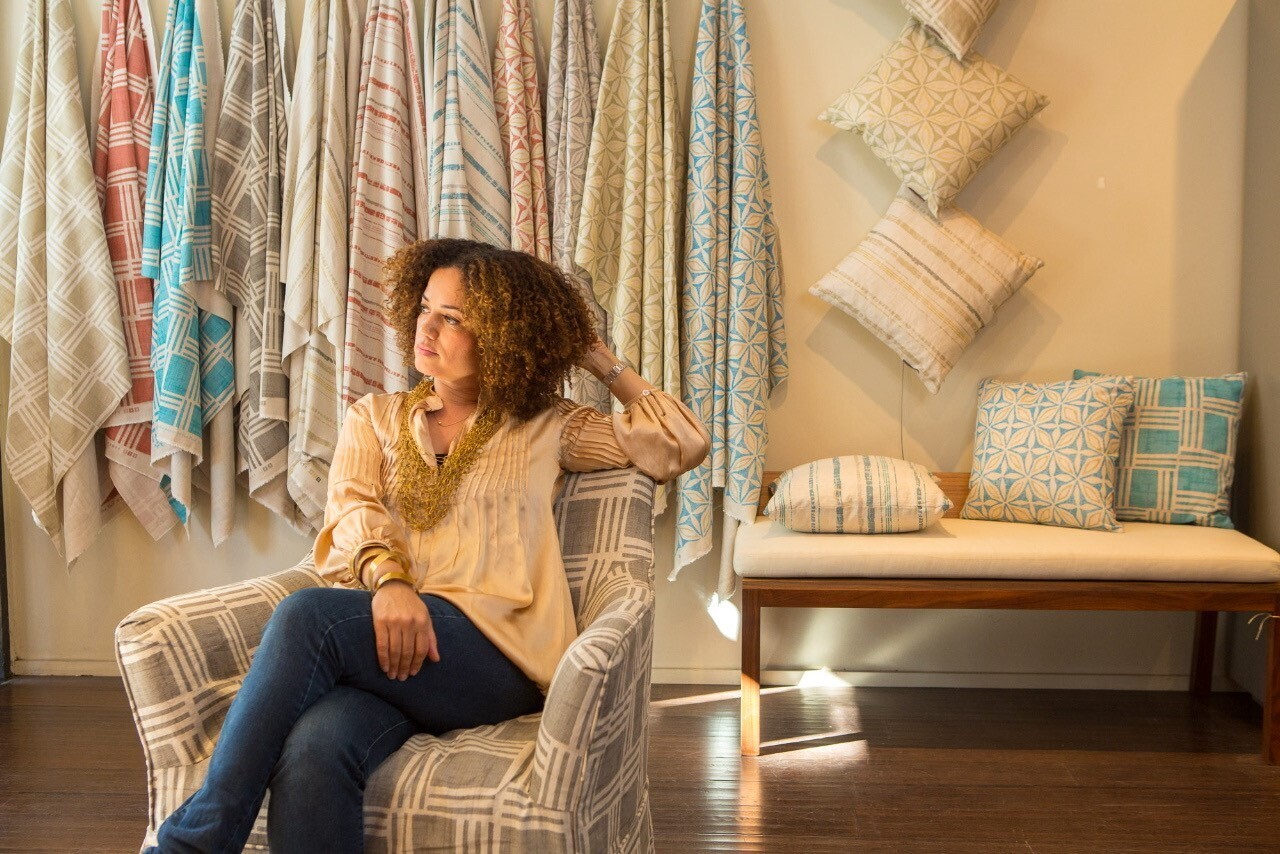 1
1 1
1
When Bridgid Coulter Cheadle started her search for a new Los Angeles office space for her interior design business, she never dreamed she would also end up finding a whole new philanthropic pursuit.
But Blackbird House, the co-working space she created, has become that and much more.
“I had this audacious thought,” she said. “What if there was a space like this that really centered on women of color with their allies? What are the specific things that you would need to really have a safe space to be inspired?”
For Coulter Cheadle and others, Blackbird is both a physical and digital co-working space, a hub focused on supporting women of color and their allies in their lives and careers. She has plans to both expand its digital offerings to provide more information and wellness programming, and create more physical locations across the country so more people can share in the experience.
Coulter Cheadle, 53, recently spoke with The Associated Press about Blackbird House, the benefits of finding a space that nurtures creativity and the importance of receiving support from others — including in her case, from her husband, actor Don Cheadle. A designer and actress herself, Coulter Cheadle also spoke about her newest role as philanthropist. It is something she will discuss at length on Thursday at “Time, Talent and Voice: What You Can Give to Make a Difference,” a free virtual program co-sponsored by The Associated Press, the Chronicle of Philanthropy and The Conversation.
The interview was edited for clarity and length.
___
Q: One thing people say WeWork did was show how putting a bunch of creative people in the same space can yield unexpected creative solutions and collaboration. With Blackbird House, you take that idea even further.
A: When I was acting, one of my agents was in a WeWork, and I’d go there and it’s dreamy. There’s a couple of values there — community, but also being able to be part of a space that you wouldn’t normally be able to call your office. It may be a $20 million building but you get to get in for like, $500 a month. In a lot of work centered on people of color or marginalized communities, you’re sometimes relegated to the back of the community center with folding tables and no inspiration. I wanted this place to be luxurious. I wanted it to be a castle. And I want it to feel like this is for you. I want it to be clear that you are welcome.
____
Q: Can you talk about how creating this space and providing it to others is a type of philanthropy that doesn’t always get noticed?
A: The space can be beautiful, and these things are important, but really it’s the people. It’s about the people and the magic that they bring, the heart that they bring and reverberates out to the planet and reflects back. I’m super-impressed with the members and their friends and the allies and the people drawn to this. This is my philanthropy because I’m a self-funded startup, so it was, “All right, we’re gonna keep going big.”
____
Q: You had so much momentum. You got Blackbird House ready. You selected the members. You opened. And then the pandemic hit.
A: It was a challenge. We thought, “OK, we’re gonna go off and work remotely for a couple of weeks, and then this whole thing will blow over and we’ll come back.” We said what we’ll do until it was over, which was kind of a gut instinct, was be of service. So we started doing virtual programming, just through (Instagram Live). We didn’t have a virtual platform — that was a year or two away in the plans — but the world told us differently. So we created it. Over the last two years, we’ve done over 350 virtual programs. Basically, we started this baby Blackbird media network of content specifically geared towards women of color. We knew we needed to keep moving forward, and we knew the community needed it. So we just started to go in that direction.
____
Q: You’ve said you’ve only recently started thinking of yourself as a philanthropist.
A: For years, I’ve worked on nonprofit boards, with groups that do an incredible impact in education, environment and all that. But I still was never calling myself a philanthropist because that’s for people who are giving millions and millions of dollars in a year. But what I love is that we’re now really reframing the idea, that philanthropy is embedded in who we are, especially as black women, where we will be making sure everyone has something. It’s not just giving your extras. It is giving the parts that really matter — your time, your intention, your shirt off your back, the food off your table. All of those things are philanthropic. I love the idea of shifting that narrative to include more people, because I think we need more positive reinforcement. And I think that helps us move forward.
___
To hear Bridgid Coulter Cheadle speak at “Time, Talent and Voice: What You Can Give to Make a Difference,” a free virtual event co-sponsored by The Associated Press, the Chronicle of Philanthropy and The Conversation, register at http://bit.ly/whatyoucangive. The Associated Press receives support from the Lilly Endowment for coverage of philanthropy and nonprofits. The AP is solely responsible for all content. For all of AP’s philanthropy coverage, visit https://apnews.com/hub/philanthropy.